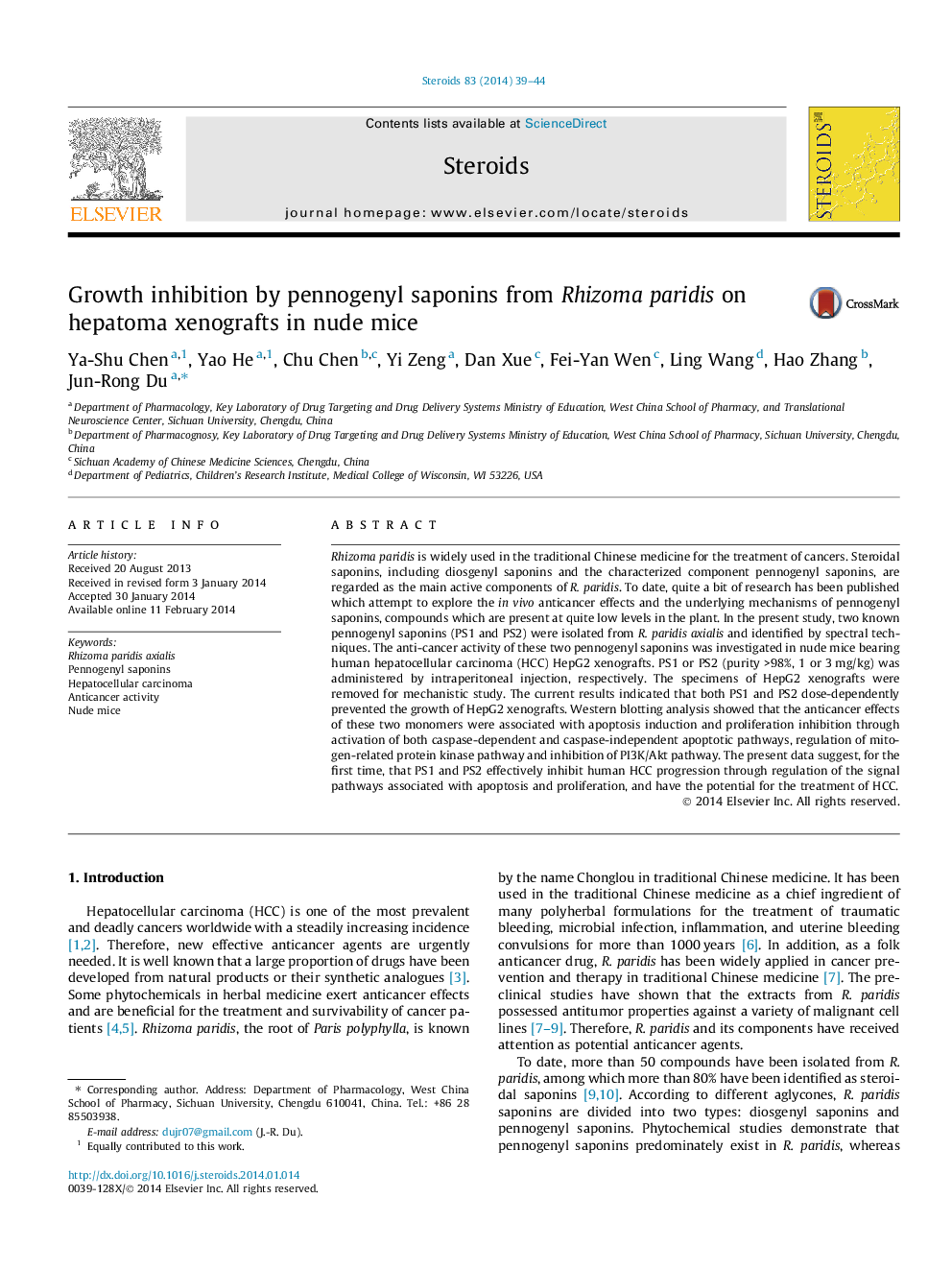| کد مقاله | کد نشریه | سال انتشار | مقاله انگلیسی | نسخه تمام متن |
|---|---|---|---|---|
| 2028031 | 1542724 | 2014 | 6 صفحه PDF | دانلود رایگان |

• Two pennogenyl saponins from Chonglou effectively inhibit hepatoma growth in vivo.
• Regulation of apoptosis and proliferation contributes to the anticancer effects.
• The mechanisms are related to caspase-dependent and -independent pathway activation.
• The mechanisms are involved in regulation of mitogen-related protein kinases pathway.
• The mechanisms are associated with inhibition of PI3K/Akt pathway.
Rhizoma paridis is widely used in the traditional Chinese medicine for the treatment of cancers. Steroidal saponins, including diosgenyl saponins and the characterized component pennogenyl saponins, are regarded as the main active components of R. paridis. To date, quite a bit of research has been published which attempt to explore the in vivo anticancer effects and the underlying mechanisms of pennogenyl saponins, compounds which are present at quite low levels in the plant. In the present study, two known pennogenyl saponins (PS1 and PS2) were isolated from R. paridis axialis and identified by spectral techniques. The anti-cancer activity of these two pennogenyl saponins was investigated in nude mice bearing human hepatocellular carcinoma (HCC) HepG2 xenografts. PS1 or PS2 (purity >98%, 1 or 3 mg/kg) was administered by intraperitoneal injection, respectively. The specimens of HepG2 xenografts were removed for mechanistic study. The current results indicated that both PS1 and PS2 dose-dependently prevented the growth of HepG2 xenografts. Western blotting analysis showed that the anticancer effects of these two monomers were associated with apoptosis induction and proliferation inhibition through activation of both caspase-dependent and caspase-independent apoptotic pathways, regulation of mitogen-related protein kinase pathway and inhibition of PI3K/Akt pathway. The present data suggest, for the first time, that PS1 and PS2 effectively inhibit human HCC progression through regulation of the signal pathways associated with apoptosis and proliferation, and have the potential for the treatment of HCC.
Figure optionsDownload as PowerPoint slide
Journal: Steroids - Volume 83, May 2014, Pages 39–44